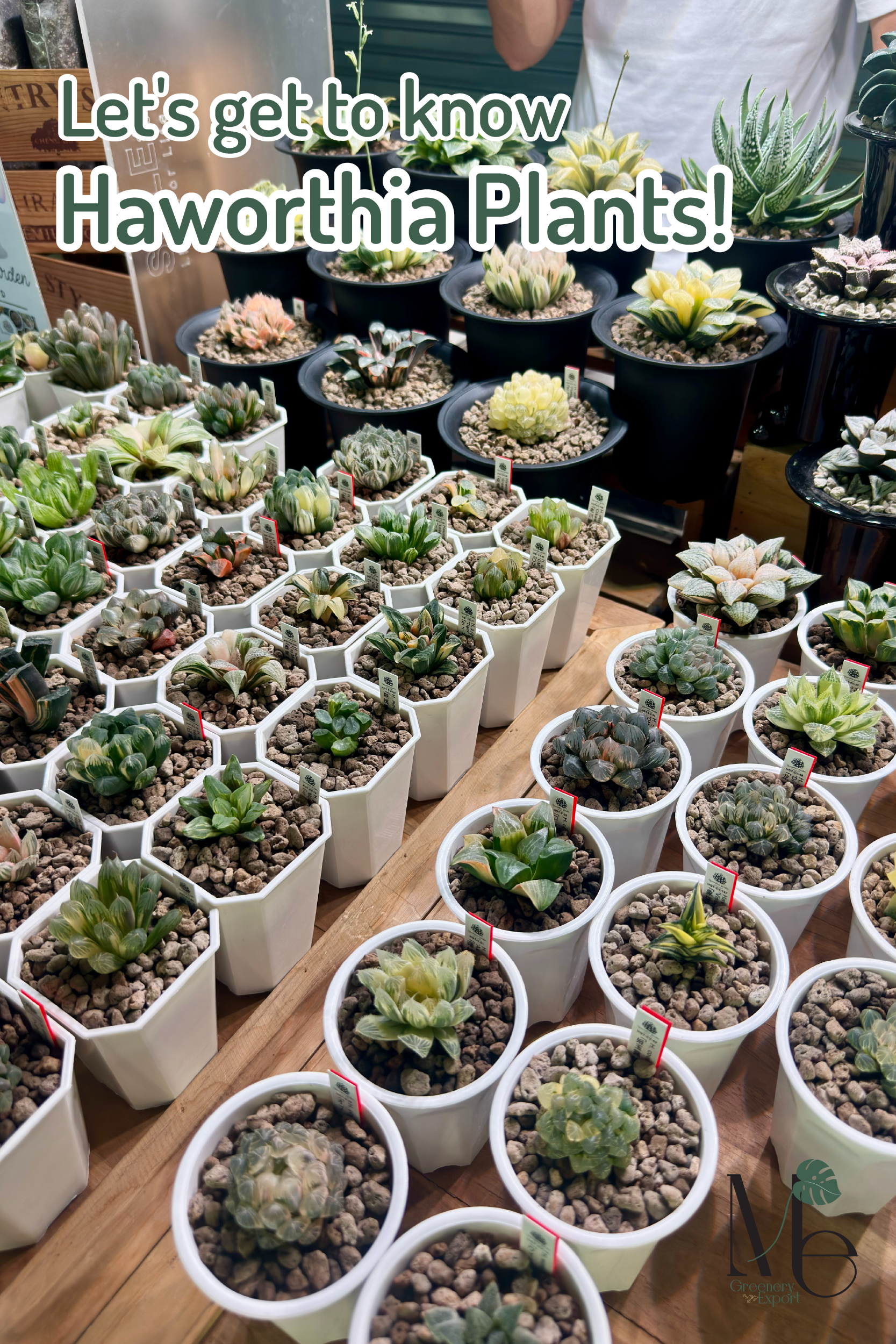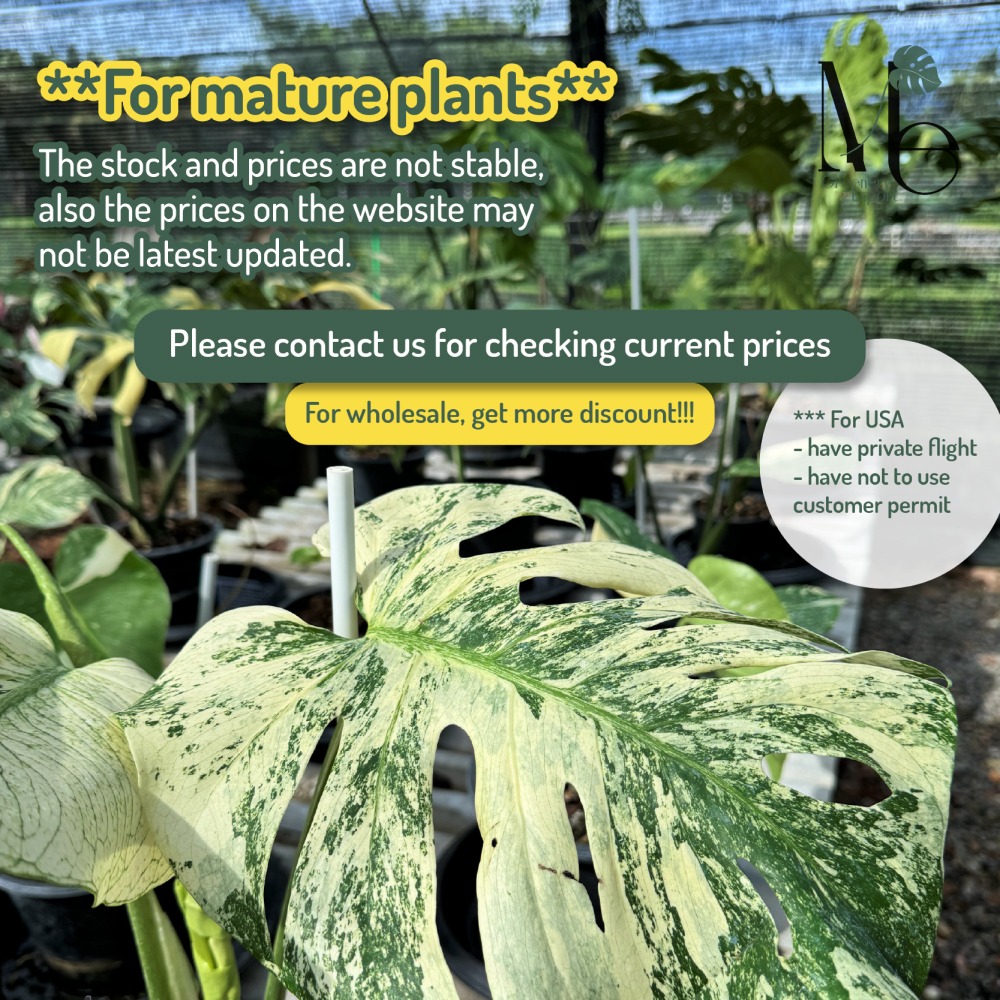No products in the cart.
Let’s get to know Haworthia Plants!
DATE : December 12, 2024 By : admin
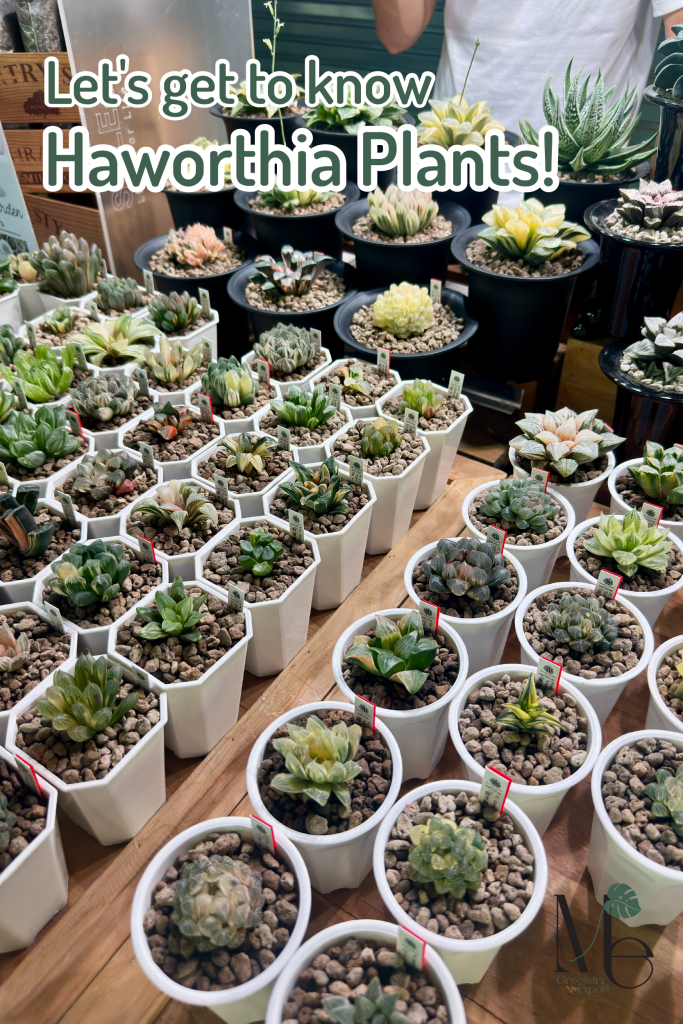
Plants have been cherished throughout history, and there is a growing trend of incorporating green spaces into our surroundings and decorating homes with various plants to enhance liveliness and provide shade. Among the most popular types are ornamental and foliage plants. However, other varieties, such as succulents, have also gained popularity due to their small, compact size and unique appearance. This is one reason why succulents attract many plant collectors. Today, we would like to introduce one of the most well-known succulent plants: Haworthia. It is truly outstanding and beautiful, as many have claimed. If you’re interested, come and take a look!
The Origin of the Haworthia
Haworthia is a succulent plant belonging to the Asphodelaceae family, which includes Aloe and aloe vera. It originates from southern Africa, specifically in countries such as Mozambique, Namibia, Lesotho, Eswatini, and South Africa. The plant features thick, fleshy stems that store a substantial amount of moisture in their tissues, which aligns with the term “succulent.” This word comes from the Latin “succos”, meaning fruit juice or nourishing water.
The Characteristics of the Haworthia
Haworthia is a plant known for its remarkable diversity, as each species has a unique shape. One common characteristic among them is the plumpness of their leaves. These plants are small in size and are considered succulents, meaning they store a significant amount of water to nourish themselves.
Examples of Sought-after Species of Haworthia
- Haworthia Cooperi
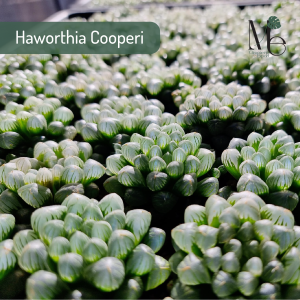
Haworthia Cooperi, scientifically known as Haworthia Cooperi Bak var. Truncata, is characterized by its short, round leaves that are stacked like rose petals. The leaves are translucent and glisten like water droplets. This plant comes in several colors, including green, black, teal, and variegated varieties.
- Haworthia Correcta, Haworthia Trungata, Haworthia Maughanii
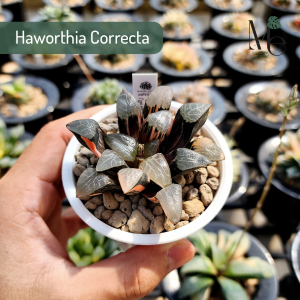
Haworthia Correcta, Haworthia Truncata, and Haworthia Maughanii share the scientific name Haworthia Truncata Schönland. A key feature of this plant is its spreading form, characterized by thick, rough, dark green leaves. The tips of the leaves are cut and feature white streaks.
- Haworthia Fasciata, Haworthia Attenuata, Haworthia Maxima, Haworthia Pumila
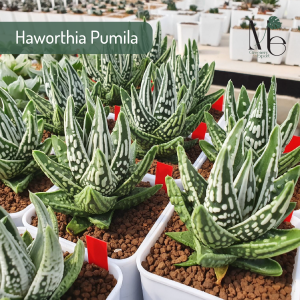
Haworthia Fasciata, Haworthia Attenuata, Haworthia Maxima, and Haworthia Pumila, have the scientific name Haworthia Fasciata (Willd.) Haw. The leaves are slender and dark green with a white stripe running horizontally across them.
How to Care for the Haworthia
Haworthia is a resilient plant that thrives in tropical regions, such as South America, as well as in the southern and eastern parts of Africa. With proper care, it can live for many years. To ensure its longevity, just follow these simple instructions:
- Light
Plant in a bright, partially shaded area where sunlight is around 20 percent. Avoid direct sunlight by covering the area with a slant. Use approximately 12,000 LUX of light if growing indoors.
- Soil
Create a rich and well-draining soil mixture by combining pumice, kanuma, pine bark, perlite, and nutrient-rich earthworm droppings. This blend should be light and airy, promoting excellent airflow and ventilation, which are essential for healthy root development and thriving plants.
- Watering
Water every 2 to 3 days. The soil should feel moist but not soggy.
- Humidity
Haworthia flourishes in environments with high humidity, making it essential to maintain consistently moist soil. Regularly checking the soil’s moisture levels will help ensure that Havotia remains healthy and vigorous.
- Temperature
Maintain a temperature of 25°C or higher to prevent air from drying out. Aim to keep the air cool and well-ventilated.
How about the “Haworthia” we introduced? This plant family is recognized for its diverse and unique shapes. It is important to understand the basic information to make an informed decision before planting. Finally, if you are interested in Haworthia (https://me-greeneryexport.com/product/haworthia-koelmaniorum/) but are still hesitant or have a question, we are happy to advise and export the best quality plants from Thailand to you every season.
See you again on the following topic, bye<3
References:

